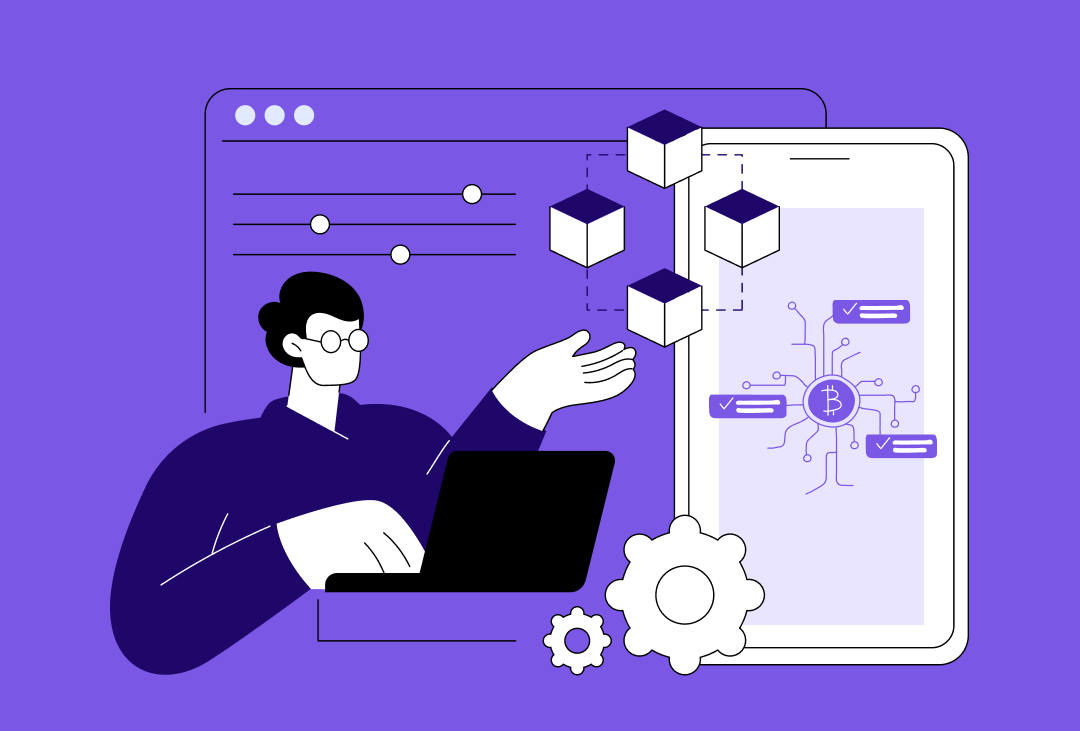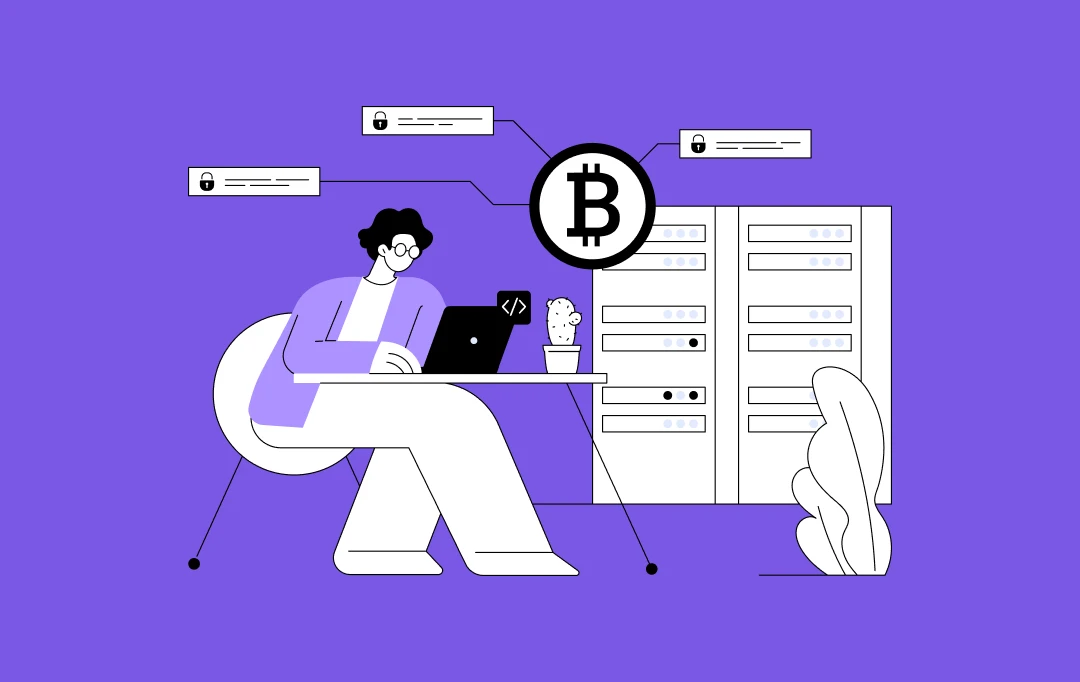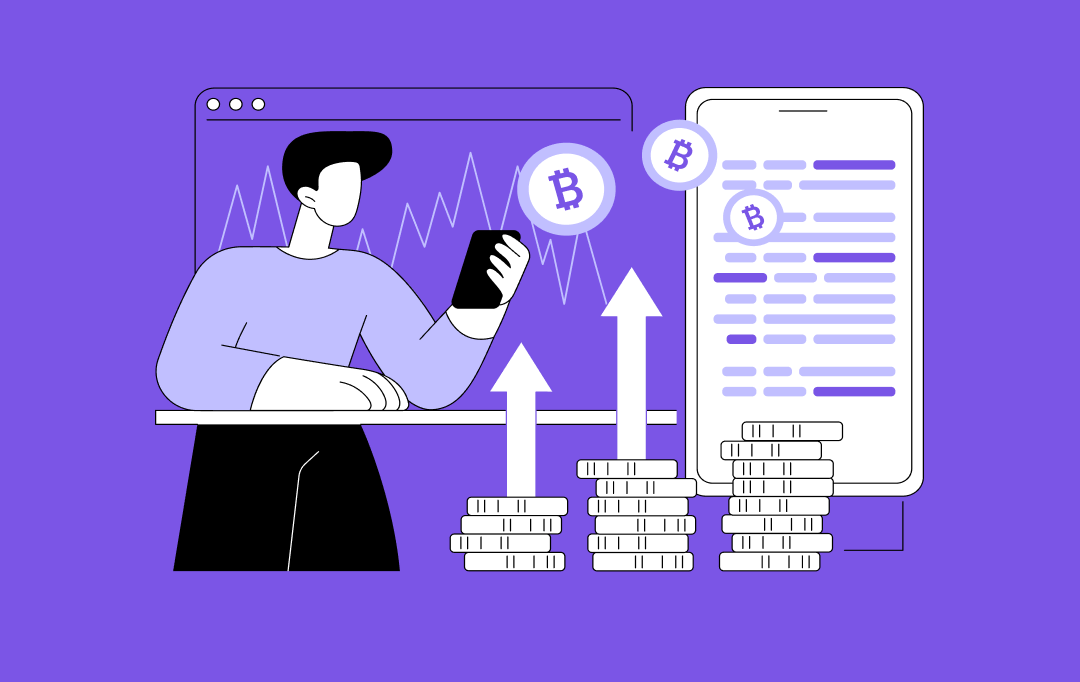- What is Blockchain Analytics?
- What is Blockchain?
- What is Data Analytics?
- Relation between Blockchain and Data Science
- How is Blockchain Impacting the Data Science?
- Enables Data Traceability
- Makes Real-Time Analysis Possible
- Ensures Data Accuracy
- Makes Data Sharing Smooth and Easy
- Improves Data Integrity
- Encoded Transactions
- Data Lakes
- How can Appinventiv help?
- Final Thoughts!
New technologies are emerging quicker than one can think. Emerging technologies like big data and blockchain are becoming conventional. Such technologies are changing the way organizations do their business. It is assumed that these two technologies are stand-alone and are being employed independently.
However, while data science deals with finding insights from raw and unstructured data, blockchain technology is a shared ledger that records and tracks transactions and assets in the business network.
As these technologies grow, the complexity and amounts of data stored too are proportionately increasing. Analyzing this data has revolutionized the two technologies by tapping their potential by bringing them together – there comes blockchain analytics.
The past decade has seen the rise of blockchain-based technologies. According to a report, the global blockchain market size was valued at $2.89 billion in 2019 and is projected to reach $137.29 billion by 2027, growing at a CAGR of 62.7% from 2020 to 2027.
Integration of the two technologies, blockchain and data science is bound to provide a boost to its market value.
What is Blockchain Analytics?
The global cryptocurrency market size was valued at $1.49 billion in 2020 and is projected to reach $4.94 billion by 2030, growing at a CAGR of 12.8% from 2021 to 2030.

As defined in Wikipedia, “Blockchain analysis is the process of inspecting, identifying, clustering, modeling and visually representing data on a cryptographic distributed-ledger known as a blockchain. The goal of blockchain analysis is discovering useful information about the different actors transacting in cryptocurrency.”
To put it in simple terms, these are the blocks of data that are chained together in chronological order. Blockchain data analysis is a process that involves understanding, classifying, and monitoring blockchain transaction data that allows users to get valuable insights and helps in better risk assessment. With all these analytical possibilities, blockchain analytics becomes the most promising application of data science.
Such transparency of data enables the regulatory authorities and law enforcement to have full visibility of unauthorized transactions and track the movement that helps them to identify the criminals. Similarly, individuals get better visibility of the trends and investments that empowers them to make more informed decisions.
To understand how it works let us first understand the blockchain and data analytics separately.
Also Read: 10 ways blockchain is leading business transformation across various industries
What is Blockchain?
Cryptocurrency Bitcoin was the first Blockchain application. Based on its tremendous success, thousands of such blockchain-based cryptocurrencies were created that are known as alt-coins. This technology is compared to the invention of double-entry accounting. To be doubly sure is bound to bring revolution in the business world.
Blockchain is basically the distributed ledger that records economic transactions which anyone can access but cannot be manipulated.
Blockchains can be divided into two types – Private and Public. Private blockchains allow read and write access to designated participants with necessary permissions. On the other hand, a public blockchain can join any node on the internet, and information/transactions can be observed by all the nodes that are connected. Public blockchain does not require any permission to access the transaction information. Cryptocurrency falls under the public blockchain.
What is Data Analytics?
Data analytics is the process of analyzing the raw data to find trends that help in getting the answers to make informed business decisions. It extracts knowledge and insights from structured and unstructured data with the help of machine learning and other advanced methods to use and analyze the data.
The organizations are running their growth machinery on the fuel of data. This data is mined, structured, and cognitively analyzed in various business applications. For example, in the healthcare industry, data science is helpful to track patient treatment and equipment flow, in the travel industry, it is used for improving customer service and experience, and many more.

[Also Read: An Easy Guide to Understand Data Analytics in Healthcare]
Relation between Blockchain and Data Science
This area has not been researched much. However, the common link between the two is that both technologies have data at the center. While blockchain records and validates data, data science delivers meaningful insights for problem-solving and decision-making.
Both the technologies apply algorithms to interact with other data segments. In a nutshell, blockchain is for data integrity and data science for predictions.
How is Blockchain Impacting the Data Science?
As understood above, both technologies have different benefits with data as the center. Bringing them together will add another layer of data that satisfies the following basic requirements:
- The data generated from data science can be secured with blockchain technology with the help of its network architecture.
- The data based on blockchain is more structured, huge, and ready for further analysis.
The specific benefits of each technology, when combined together, can save money by storing and analyzing data using blockchain technology that can store data for long periods of time.
Listed below are some benefits of how blockchain will enhance data science.

Enables Data Traceability
Blockchain enables peer-to-peer relationships. This means that if one account cannot explain the published methodology, this can be viewed by the other peer who could analyze and review the methodology from start to finish to identify how were the results achieved.
Blockchain enables the user to trace data through ledger transparent channels from the point of entry to exit. The user gets to know which data is reliable to use, how to store and update it, where it comes from, and its usage.
Makes Real-Time Analysis Possible
Real-time data analysis is very difficult. However, blockchain technology enables companies to analyze data on a real-time basis in a proficient way that helps in identifying any irregularities at an early stage.
Blockchain also enables two or more people to work on the same kind of information at the same time similar to the spreadsheet feature where the changes can be made and assessed by different users on a real-time basis.
Ensures Data Accuracy
As explained above, blockchain data is stored in both private and public nodes. Before adding the data to other blocks, the data is examined and cross-checked at the entry point itself. This, in itself, is a data verification process.
Makes Data Sharing Smooth and Easy
Smooth and easy flow of data are what make the functioning of the organization smooth. Managing data on paper is not only tedious but is difficult to manage as well.
Blockchain technology is fascinating when it comes to data flow and access. It can easily be viewed, transferred, and accessed in real-time, making it possible for two or more users at the same time.
The smooth and easy data flow without restrictions streamlines the administration process.
Improves Data Integrity
The organizations are specifically particular about data authenticity today. The challenge in the past decades was to improve the data storage capacity. The advancements in technology helped overcome this challenge by the end of 2018. Then came the challenge of protecting and verifying the integrity of data.
As the data is sourced from different sources, it is highly prone to errors, duplicates, and inaccuracies.
Blockchain technology is a sigh of relief as this technology ensures the authenticity of data at every block of the chain. Organizations are adopting blockchain technology because of its immutable security. Data is verified and cross-checked at every block with multiple signatures on the decentralized ledger records. Unless the exact match is not found for the signature at every step, access will be denied. Thus, the possibility of data hacking and leaks is greatly reduced.
Listed below are some of the security aspects of blockchain that are beneficial to data science
Encoded Transactions
With the use of complex mathematical algorithms, blockchain encrypts every transaction of the ledger. These act as immutable and irreversible digital contracts between the parties.
Data Lakes
Organizations’ details are normally stored in data lakes. Blockchain uses the source of the data to record it in a specific block with a specific cryptographic key. Having the right key of the source of data origin ensures the accuracy, quality, and genuineness of the data.
[Also Read: What is Blockchain Beyond Cryptocurrencies: 22 Use Cases]
How can Appinventiv help?
Blockchain analytics is no more associated with Cryptocurrency only. The benefits are being harnessed by other industries as well. A combination of blockchain and data analytics will take your organization a step ahead in terms of growth.
Appinventiv is a blockchain development company that can deploy blockchain software through a team of experienced and knowledgeable enthusiasts.
We have helped a US-based telecom giant enhance data quality and consistency by offering data analytics services that led to an 85% increase in data quality and accessibility and 100% availability of customer data to every department.
Another example is where Appinventiv introduced the hotel industry with crypto-economics. With EmpireApp, the entire hotel booking ecosystem was brought together to make the system transparent by removing the profit making intermediaries.
Reach out to our experts to know how can we be your partner in growth by deploying a blockchain analytics platform.
Final Thoughts!
With the increase in usage of blockchain technology, the importance of blockchain analytics too is increasing. Having transparent access to the ledger transaction with immutable data is not a dream anymore. Thanks to blockchain data analytics!
The said technology has already been adopted by industries from digital finance to food safety to healthcare to weapon tracking. Other industries will also usher the benefits soon.
FAQs
Q. What is blockchain analysis?
A. Blockchain analysis is the process of, identifying, inspecting, clustering, modeling and visually representing data on a cryptographic distributed-ledger known as a blockchain.
Q. What are the emerging blockchain-based applications?
A. The emerging Blockchain-based applications include voting (FollowMyVote, Social Krona), identity services (Bitnation, Hypr), provenance (Everledger, Chronicled), and copyright management (LBRY, Blockphase).
Q. Which industries are using blockchain analytics?
A. Transport, healthcare, banking, and retail and manufacturing industries have been leveraging blockchain analytics tools.



How Much Does it Cost to Build a Blockchain App in the UAE?
Key takeaways: The UAE blockchain market is rapidly expanding, with the BFSI sector capturing over 50% of the market share. As blockchain adoption accelerates, development costs in the UAE range from AED 55,000 to AED 1.85 million, depending on app complexity and features. Factors such as platform selection, security measures, and third-party integrations directly impact…

How Blockchain Integration Is Optimizing Business Processes in Dubai
Key takeaways: Blockchain is a strategic enabler in Dubai, transforming traditional business workflows by enhancing efficiency, transparency, and automation beyond cryptocurrency applications. Dubai’s supportive regulatory environment and government initiatives (e.g., VARA, Dubai Blockchain Strategy) create a clear, innovation-friendly framework, accelerating blockchain adoption. Integration with legacy systems through modular blockchain solutions enables enterprises to modernize operations…

OTC Crypto Exchange Development - Benefits, Features, Process, Costs
As the world of cryptocurrency continues to evolve, the demand for Over-the-Counter (OTC) crypto exchanges has surged. Unlike traditional exchanges that are open to all traders and often suffer from market slippage when large trades are executed, OTC exchanges cater specifically to institutional investors, high-net-worth individuals, and corporate traders who need to make large transactions…

















